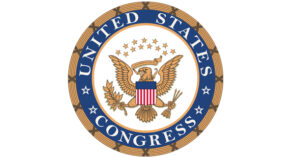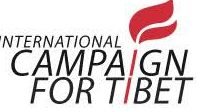 The United States Congress has unanimously passed the Reciprocal Access to Tibet Act which now goes to President Trump, who is expected to sign the bill into law. It was passed by the US House Judiciary Committee and the full House of Representatives in September and the United States Senate Foreign Relations Committee in November. The bill, which was passed by Congress on December 11, is bipartisan legislation designed to address China’s exclusion of American journalists, diplomats and citizens from Tibet.
The United States Congress has unanimously passed the Reciprocal Access to Tibet Act which now goes to President Trump, who is expected to sign the bill into law. It was passed by the US House Judiciary Committee and the full House of Representatives in September and the United States Senate Foreign Relations Committee in November. The bill, which was passed by Congress on December 11, is bipartisan legislation designed to address China’s exclusion of American journalists, diplomats and citizens from Tibet.
The bill requires the Secretary of State to assess the level of access to Tibet for US citizens within 90 days of the enactment of the legislation and to send a report to Congress identifying Chinese officials who are responsible for keeping Americans out of Tibet. The Secretary of State will then ban those officials from receiving visas to enter the US.
China published an objection in the state run media Global Times, with a statement by Ling Shengli, secretary-general of the International Security Study Centre at China Foreign Affairs University, demanding a retraction, and the comment that the new law is “the typical US way of meddling in the internal affairs of other countries through legislation”.
“The Reciprocal Access to Tibet Act is an important statement of our values,” said Senator Robert Menendez, one of 14 cosponsors of the bill. “This legislation is simply about fundamental fairness. Chinese citizens enjoy broad access to the United States […] but it is unacceptable that the same is not true for US students, journalists or diplomats going to Tibet, including our Tibetan-American constituents just trying to visit their country of origin. If China wants its tourists, officials, journalists and other citizens to be able to travel freely across the US, American citizens must be able to travel freely in China, including Tibet.”
The bill received support from both sides of the aisle in Congress. “China’s repression in Tibet includes keeping out those who can shine a light on its human rights abuses against the Tibetan people,” said Senator Rubio, who introduced the companion bill in the Senate. “We should not accept a double standard where Chinese officials can freely visit the United States while at the same time blocking our diplomats, journalists and Tibetan-Americans from visiting Tibet. I look forward to President Trump signing this bill into law that will help to restore some measure of reciprocity to America’s relationship with China.”
 The campaign to achieve the approval of the Reciprocal Access to Tibet Act has been led by the International Campaign for Tibet (ICT)—in coordination with Tibetan-American associations and Tibet support groups—since 2014. Several thousand ICT members and American citizens contacted their members of Congress to ask them to support the bill. ICT is a nonprofit, membership-based organisation in Washington, DC that advocates for human rights and democratic freedoms for the people of Tibet.
The campaign to achieve the approval of the Reciprocal Access to Tibet Act has been led by the International Campaign for Tibet (ICT)—in coordination with Tibetan-American associations and Tibet support groups—since 2014. Several thousand ICT members and American citizens contacted their members of Congress to ask them to support the bill. ICT is a nonprofit, membership-based organisation in Washington, DC that advocates for human rights and democratic freedoms for the people of Tibet.




 Print
Print Email
Email